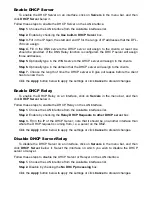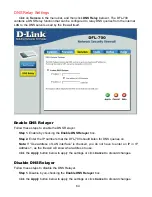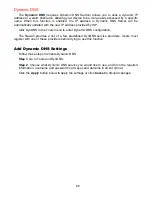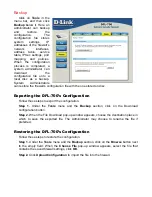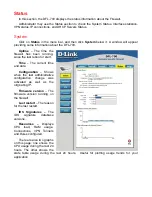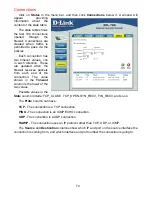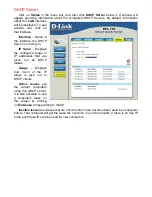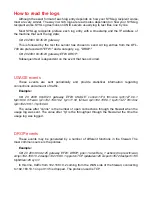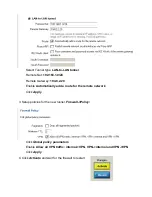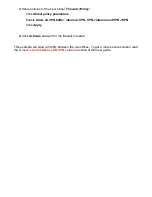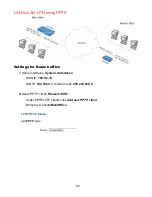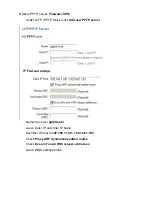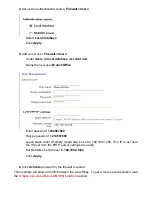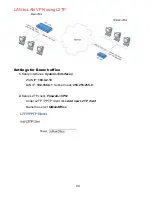
How to read the logs
Although the exact format of each log entry depends on how your SYSLog recipient works,
most are very similar. The way in which logs are read is also dependent on how your SYSLog
recipient works. SYSLog daemons on UNIX servers usually log to text files, line by line.
Most SYSLog recipients preface each log entry with a timestamp and the IP address of
the machine that sent the log data:
Oct 20 2003 09:45:23 gateway
This is followed by the text the sender has chosen to send. All log entries from the DFL-
700 are prefaced with "EFW:" and a category, e.g. "DROP:"
Oct 20 2003 09:45:23 gateway EFW: DROP:
Subsequent text is dependent on the event that has occurred.
USAGE events
These events are sent periodically and provide statistical information regarding
connections and amount of traffic.
Example:
Oct 20 2003 09:45:23 gateway EFW: USAGE: conns=1174 if0=core ip0=127.0.0.1
tp0=0.00 if1=wan ip1=192.168.10.2 tp1=11.93 if2=lan ip2=192.168.0.1 tp2=13.27 if3=dmz
ip3=192.168.1.1 tp3=0.99
The value after “conns" is the number of open connections through the firewall when the
usage log was sent. The value after “tp” is the throughput through the firewall at the time the
usage log was logged.
DROP events
These events may be generated by a number of different functions in the firewall. The
most common source is the policies.
Example:
Oct 20 2003 09:42:25 gateway EFW: DROP: prio=1 rule=Rule_1 action=drop recvif=wan
srcip=192.168.10.2 destip=192.168.0.1 ipproto=TCP ipdatalen=28 srcport=3572 destport=135
tcphdrlen=28 syn=1
In this line, traffic from 192.168.10.2 coming from the WAN side of the firewall, connecting
to 192.168.10.1 on port 135 is dropped. The protocol used is TCP.
Summary of Contents for DFL-700 - Security Appliance
Page 1: ...D Link DFL 700 Network Security Firewall Manual Building Networks for People 04 18 2005 TM ...
Page 102: ...102 5 Select Connect to the network at my workplace and click Next ...
Page 103: ...6 Select Virtual Private Network connection and click Next ...
Page 104: ...104 7 Name the connection MainOffice and click Next ...
Page 105: ...8 Select Do not dial the initial connection and click Next ...
Page 106: ...106 9 Type the IP address to the server 194 0 2 20 and click Next 10 Click Finish ...

